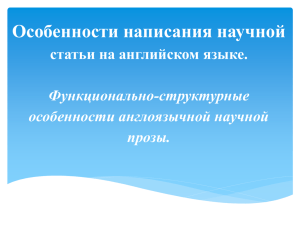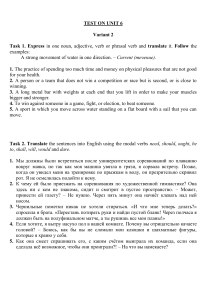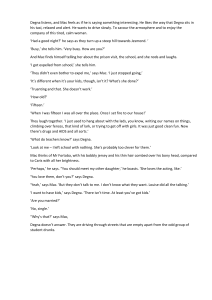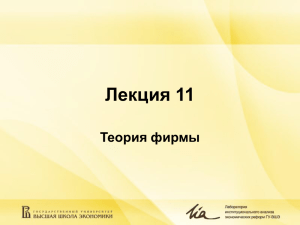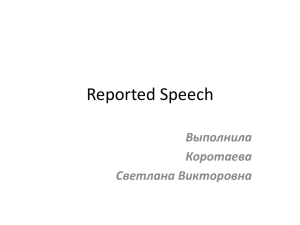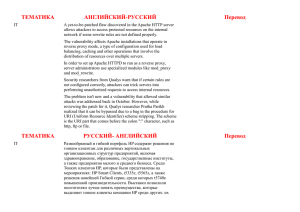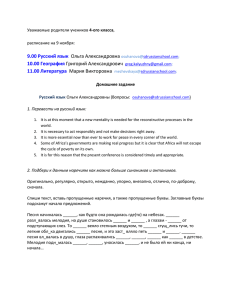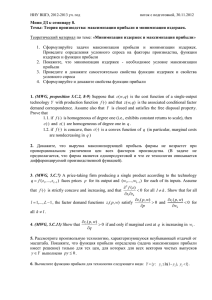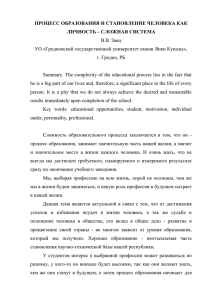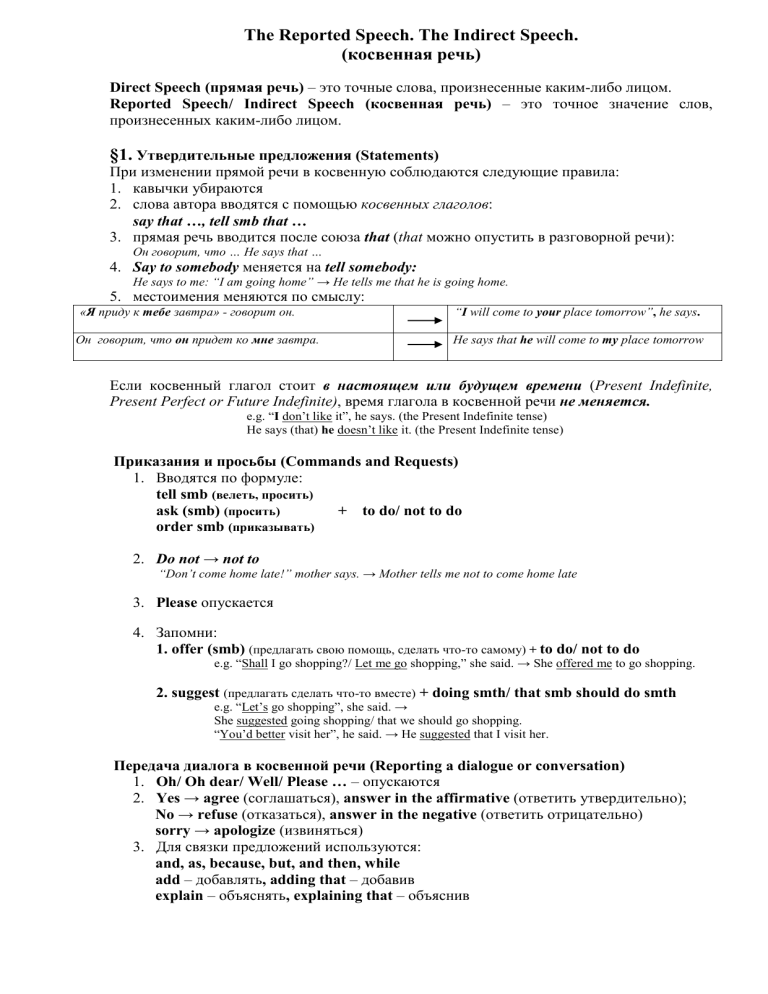
The Reported Speech. The Indirect Speech. (косвенная речь) Direct Speech (прямая речь) – это точные слова, произнесенные каким-либо лицом. Reported Speech/ Indirect Speech (косвенная речь) – это точное значение слов, произнесенных каким-либо лицом. §1. Утвердительные предложения (Statements) При изменении прямой речи в косвенную соблюдаются следующие правила: 1. кавычки убираются 2. слова автора вводятся с помощью косвенных глаголов: say that …, tell smb that … 3. прямая речь вводится после союза that (that можно опустить в разговорной речи): Он говорит, что … He says that … 4. Say to somebody меняется на tell somebody: He says to me: “I am going home” → He tells me that he is going home. 5. местоимения меняются по смыслу: «Я приду к тебе завтра» - говорит он. Он Он говорит, что он придет ко мне завтра. “I will come to your place tomorrow”, he says. He He says that he will come to my place tomorrow Если косвенный глагол стоит в настоящем или будущем времени (Present Indefinite, Present Perfect or Future Indefinite), время глагола в косвенной речи не меняется. e.g. “I don’t like it”, he says. (the Present Indefinite tense) He says (that) he doesn’t like it. (the Present Indefinite tense) Приказания и просьбы (Commands and Requests) 1. Вводятся по формуле: tell smb (велеть, просить) ask (smb) (просить) + to do/ not to do order smb (приказывать) 2. Do not → not to “Don’t come home late!” mother says. → Mother tells me not to come home late 3. Please опускается 4. Запомни: 1. offer (smb) (предлагать свою помощь, сделать что-то самому) + to do/ not to do e.g. “Shall I go shopping?/ Let me go shopping,” she said. → She offered me to go shopping. 2. suggest (предлагать сделать что-то вместе) + doing smth/ that smb should do smth e.g. “Let’s go shopping”, she said. → She suggested going shopping/ that we should go shopping. “You’d better visit her”, he said. → He suggested that I visit her. Передача диалога в косвенной речи (Reporting a dialogue or conversation) 1. Oh/ Oh dear/ Well/ Please … – опускаются 2. Yes → agree (соглашаться), answer in the affirmative (ответить утвердительно); No → refuse (отказаться), answer in the negative (ответить отрицательно) sorry → apologize (извиняться) 3. Для связки предложений используются: and, as, because, but, and then, while add – добавлять, adding that – добавив explain – объяснять, explaining that – объяснив The Reported Speech. The Indirect Speech. (косвенная речь) Direct Speech (прямая речь) – это точные слова, произнесенные каким-либо лицом. Reported Speech/ Indirect Speech (косвенная речь) – это точное значение слов, произнесенных каким-либо лицом. §1. Утвердительные предложения (Statements) При изменении прямой речи в косвенную соблюдаются следующие правила: 1. кавычки убираются 2. слова автора вводятся с помощью косвенных глаголов: say that …, tell smb that … 3. прямая речь вводится после союза that (that можно опустить в разговорной речи): Он говорит, что … He says that … 4. Say to somebody меняется на tell somebody: He says to me: “I am going home” → He tells me that he is going home. 5. местоимения меняются по смыслу: «Я приду к тебе завтра» - говорит он. Он Он говорит, что он придет ко мне завтра. “I will come to your place tomorrow”, he says. He He says that he will come to my place tomorrow Если косвенный глагол стоит в настоящем или будущем времени (Present Indefinite, Present Perfect or Future Indefinite), время глагола в косвенной речи не меняется. e.g. “I don’t like it”, he says. (the Present Indefinite tense) He says (that) he doesn’t like it. (the Present Indefinite tense) Приказания и просьбы (Commands and Requests) 1. Вводятся по формуле: tell smb (велеть, просить) ask (smb) (просить) + to do/ not to do order smb (приказывать) 2. Do not → not to “Don’t come home late!” mother says. → Mother tells me not to come home late 3. Please опускается 4. Запомни: 1. offer (smb) (предлагать свою помощь, сделать что-то самому) + to do/ not to do e.g. “Shall I go shopping?/ Let me go shopping,” she said. → She offered me to go shopping. 2. suggest (предлагать сделать что-то вместе) + doing smth/ that smb should do smth e.g. “Let’s go shopping”, she said. → She suggested going shopping/ that we should go shopping. “You’d better visit her”, he said. → He suggested that I visit her. Передача диалога в косвенной речи (Reporting a dialogue or conversation) 1. Oh/ Oh dear/ Well/ Please … – опускаются 2. Yes → agree (соглашаться), answer in the affirmative (ответить утвердительно); No → refuse (отказаться), answer in the negative (ответить отрицательно) sorry → apologize (извиняться) 3. Для связки предложений используются: and, as, because, but, and then, while add – добавлять, adding that – добавив explain – объяснять, explaining that – объяснив
